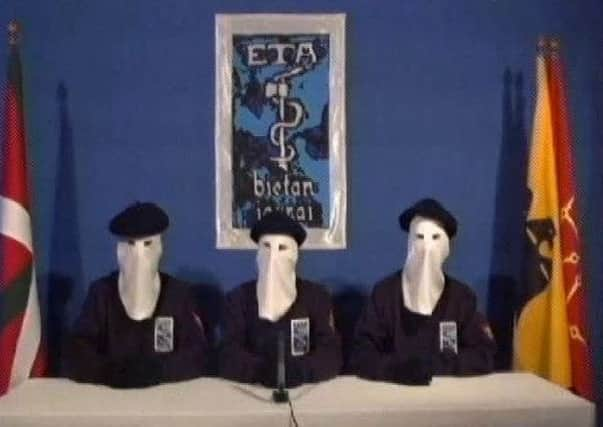Basque audience '˜surprised by legitimisation of NI terror'


The situation arose when former Ulster University politics professor, Henry Patterson, gave an address on “Victims and the Peace Process in Northern Ireland” in Vitoria recently.
The event was a seminar organised by the Foundation Fernando Buesa, named after a leading member of the Spanish Socialist Party who was murdered by ETA in 2000.
Advertisement
Hide AdAdvertisement
Hide Ad“Needless to say the Spanish participants were taken aback by my description of legitimation of terrorist narratives in Northern Ireland,” said Prof Patterson.
The 100-strong audience consisted of ETA victims and academics, some of whom have been granted to write a history of ETA by the Basque government.
Prof Patterson said the role of historians in dealing with Northern Ireland’s past is “largely lacking” by comparison. He said his audience was surprised that:
• The official definition of a victim in Northern Ireland does not mention “terrorism” and makes no distinction between terrorists and victims;
Advertisement
Hide AdAdvertisement
Hide Ad• An IRA ex-leader – deputy first minister, Martin McGuinness, who “continues to justify the Provisionals’ campaign” – was given “a star turn” at this years Victims and Survivors conference;
• That Eibhlin Glenholmes – once wanted in connection with a series of 1980s bombings and later allegedly the IRA’s representative to Cuba – was appointed to the Victims and Survivors Forum.
Luis Castells, professor of contemporary history at the University of the Basque Country, was in the audience.
He said Prof Patterson explained the issues “very well”. The Basque country stands in contrast in the following ways, he said:
Advertisement
Hide AdAdvertisement
Hide Ad• The government, media and teachers all use the term “terrorists” to describe ETA and related groups, including those on the radical right;
• Victims of terrorism today in the Basque country have “a public recognition and appear in the public scenario”.
• The great majority of the Spanish and Basque population now has a good understanding of ETA and even the political party that historically supported it, Herri Batasuna (now Sortu), has “serious difficulties” when it tries to publicly defend the terror group.
Prof Castells added: “Of course, we distinguish victims and perpetrators, as it has moral and politics consequences.”